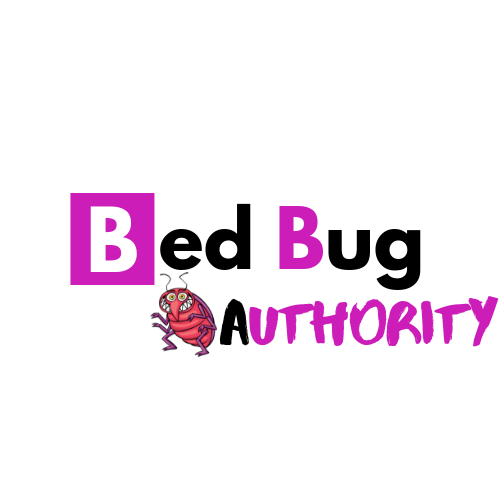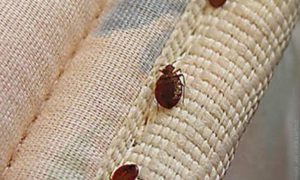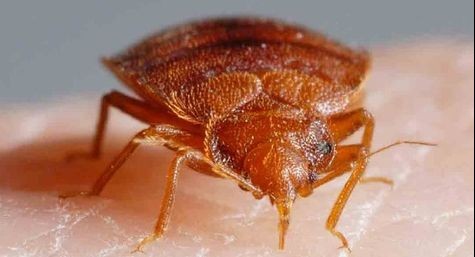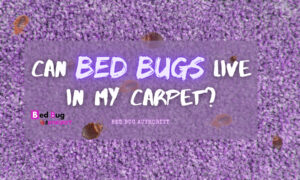
CAN I KILL BED BUGS WITH LAVENDER AND OTHER ESSENTIAL OILS
While waking up in the morning to find yourself covered in itchy, irritated red bumps is a horrible experience. If the bumps you see are in lines along your skin instead of in more random clusters, you might be even more concerned, as that is a common bite pattern associated with bed bugs. Instantly, you may wonder if these unwelcome pests are infesting your mattress or other areas of your home. If you’ve ever heard about natural repellents alleged to be effective in controlling these insects, you might wonder, does lavender really repel bed bugs?
Sorry to be the bearer of bad news but, lavender is not an effective method to keep bed bugs away. Public health officials recognize the significant psychological toll an infestation can have on your home life and advise against DIY bed bug control methods and in favor of enlisting an experienced pest professional to deal with the problem. But, if you’re not in a situation where you can afford to pay a professional to get rid of your problem, I have some great news, YOU CAN GET RID OF BED BUGS YOURSELF. In order to completely eliminate bed bugs from your home, entomologists recommend applying some type of insecticide-based control treatments to common problem areas.
While recent studies have shown that some products containing essential oils were somewhat effective at killing immature bed bugs, the impact was the greatest when sprayed directly on these pests. The problem is that it is very hard to simulate these ideal conditions, because bed bugs are very rarely out in the open, instead preferring to hide deep in that crevices and cracks of your furniture and bedding. Most of these plant oil or detergent-based products were less effective in controlling bed bug eggs, making victims vulnerable to a recurrence. When compared to other products more commonly used by pest control professionals, products with essential oils are not able to kill bed bugs after they dry because they have no residual effect.
Bed bug infestations are becoming a major problem across the United States, and once these pests have settled in, they are difficult and expensive to eradicate. The National Pest Management Association revealed that 97 percent of pest control professionals treated bed bugs in the past year. The same report revealed that hotels spend nearly $6,400 per bed bug incident trying to eliminate them. No doubt, bed bugs are a widespread problem, and a tricky one to get rid of.
These pesky pests are attracted to humans—they feed on blood, and we provide one of their favorite sources of nourishment. These parasites are attracted to the carbon dioxide we emit while sleeping at night, and they are great at finding the best time to crawl out of their hiding places and onto a sleeping person host for a meal. Since these bugs’ saliva contains a natural anesthetic, their victims don’t feel the bites while they’re happening; this is why most people don’t know they have bed bugs living in their homes until they start seeing telltale signs like itchy red bites on their skin, small black spots of fecal matter on their mattresses, blood spots on their sheets or the actual bugs themselves. When a person doesn’t have a reaction to their bites is when the infestations get out of control because they go so long without being noticed.
It’s understandable why many homeowners would seek natural remedies like lavender or eucalyptus oil to try to repel bed bugs, but can these items really work? Let’s explore whether natural bed bug repellents are effective or if they are a myth—and if they aren’t effective in keeping bed bugs at bay, let’s learn about what homeowners can do to keep their homes free of these nasty pests.

Do Homemade Bed Bug Repellent Work?
Some people swear by homemade bug repellents made of ingredients like witch hazel, apple cider vinegar, and spicy-scented essential oils to keep mosquitoes and other unwanted pests away—but is there such a thing as a homemade bed bug repellent? Most importantly, do they work?
If only we could repel bed bugs away by burning a citronella candle or spritzing rosemary oil over our pillows at night! While certain insects, including mosquitoes, ants and spiders, might be effectively repelled by natural remedies, it is quite a bit harder to find a natural or homemade bed bug repellent that truly works. Now, there is no harm in spraying lavender oil over your sheets at bedtime or researching homemade bed bug repellent recipes on the Internet; just don’t expect these remedies to solve your problem. Especially in a bed bug infestation, something stronger than natural repellents will almost certainly be needed to treat the problem.
Rubbing alcohol and bleach are common household ingredients that some homeowners believe can help in controlling bed bug populations. The truth is that these substances are highly unlikely to work in any true or lasting way when faced with a bed bug infestation. If you are determined to try a home remedy for bed bugs, your best bet is probably using desiccant dust such as diatomaceous earth or silica aerogels to see if that helps control your bed bug population.
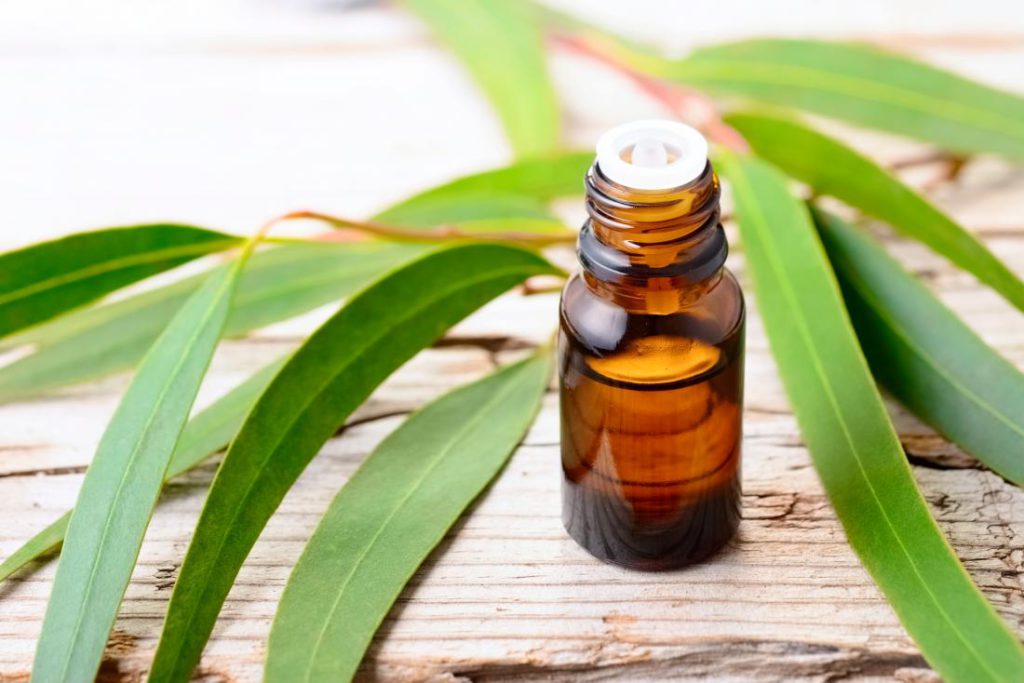
Can Eucalyptus Oil Kill Bed Bugs?
Put simply, if used on its own, eucalyptus oil will almost certainly not be effective in repelling bed bugs. Combined with other oils or natural methods to keep these pests at bay, eucalyptus is in the same category as lavender and other essential oils—that is, some people may find them to be somewhat effective, but overall, they simply don’t work in killing or repelling bed bugs.
If you would like to try using eucalyptus oil to repel bed bugs, you can mix several drops of it in a spray bottle with a few drops each of lavender, rosemary, and tea tree oil, along with a cup of water. Shake the bottle thoroughly, since oil separates quickly from water, and spray the solution around your bed or couch several times a day. It may help a bit with bed bugs; for the most part, its fresh, spicy fragrance should keep your home smelling nice, and could even repel other types of bugs and insects. Again, don’t expect it to be a magic bullet in combating bed bugs that have taken up residence in your mattress or furniture.

Can I Use Lavender Oil To Repel Any Bug?
Anybody who wants to try using lavender oil to repel bugs may find that it is at least somewhat effective against certain types of pests. One example, pet owners might try combining lavender oil, lemon juice and witch hazel in a spray bottle, and spraying the solution on their furry friends for natural protection against fleas. Some people claim rosemary oil is an effective natural flea repellent for use on pets, but many dogs are very sensitive to rosemary; it is always a good idea to consult with your pets’ veterinarian before using any flea remedy, whether natural or synthetic.
The same lavender, lemon and witch hazel solution can be sprayed onto clothes to repel moths, while a mixture of lavender and citronella oils can provide at least limited protection from mosquito bites during the spring and summer months. As with many different types of home remedies, your mileage may vary. Every person must weigh the risk pests pose, which could be anything from a dangerous disease to a lack of sleep to skin irritation, with the time and energy needed to implement a sound long-term treatment plan on your own.
How To Repel Bed Bugs: Methods That Work
While lavender oil, eucalyptus oil, and other natural remedies may be of only limited effectiveness at best when it comes to dealing with bed bugs, there are things homeowners can do to make an infestation less likely. Here are some good ways to prevent an infestation:
- If you travel, never place your luggage or clothing directly on the bed or the floor in a hotel room. Instead, use the luggage rack and hang items in the closet. It’s also a good idea to carry a small flashlight that you can use to inspect the bed before settling in. Pull back the sheets and pillowcases so you can closely inspect the pillows, as well as the seams of the mattress, for any signs of bed bug activity—namely, clusters of black dots (fecal matter), brown or rust-colored spots (dried blood from previous bite victims) or actual bed bugs or their eggs. Bed bugs are quite small, ranging from just one to five millimeters in size, and range in color from pale tan to dark reddish-brown.
- If you frequent yard sales or secondhand stores, perform the same type of careful inspection before bringing anything, whether clothing, toys, books or furniture, into your home. Anything washable should be put through your washer and dryer using the hottest settings available.
- Keep your home clean and clear of clutter. Having a bed bug infestation is in no way a reflection on a homeowner’s cleanliness or housekeeping abilities; bed bugs can make their way into even the cleanest, neatest of homes. Still, regular vacuuming, especially deep vacuuming between sofa cushions, around the seams of your mattress and between the mattress and headboard, can be helpful in keeping bed bugs at bay. Bed bugs have actually been known to infest piles of books, magazines, and other clutter, as well as to cluster in the corners of dresser drawers or on the wallpaper behind furniture, so regular deep-cleaning, in general, can be helpful in controlling their populations.
The methods above are all about prevention, which becomes pointless once bed bugs find their way into your home. Since bed bugs don’t only live in beds, an infestation must be treated as a whole-house problem. Effectively eliminating bed bugs is often a multi-step process that must be carefully planned and executed by a professional.

Eliminate Bed Bugs From Your Home For Good
If bed bugs have left you tossing and turning at all hours of the night and covered in itchy welts the next morning, you’ll want to have the problem addressed before it gets worse. While lavender and other essential oils may help keep some pests from bothering you in your home, these natural remedies are not effective in completely eliminating these pests in all stages of their life cycle. You will need to conduct a thorough inspection to determine whether you have bed bugs or any other pest present. Then develop a comprehensive plan to rid your home of bed bugs so you can sleep soundly at night, worry-free.
